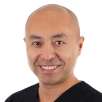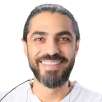Though it is a nation with a rich and storied history, Lebanon has been known in more recent times for its volatile political climate and high levels of poverty. Something else that remains an issue there, however, is access to dental care. Dental Tribune Online spoke with Dr Gautam Sharma, owner of a dental practice in Norfolk in England, about his recent work helping displaced families and children with the Dental Mavericks charity in Lebanon.
What was it that first motivated you to travel to Lebanon and provide dental care to displaced and disadvantaged families and children there?
I’ve heard about charity relief elsewhere in the world for a long time and I just felt like I could be doing more. Through dentistry, I have a skill that can be utilised and so, rather than just donating money to a charity, I wanted to do something different, something more related to my skills. I wanted to get back to the inception of my interest in dentistry, back to the point where I wanted to be a dentist purely to help people. In this respect, volunteering ticked all the right boxes.
I have to say that working with the Dental Mavericks has been one of the best things I’ve ever done. It’s been the most liberating experience, helping people who are grateful to be helped. Being with the Dental Mavericks team, who do massive charity work in places like Morocco, Greece and, of course, Lebanon, was extremely rewarding and I’m very happy to have come on-board with them as a trustee.
How do you find the time to juggle this work with running a dental practice?
Well, I’m immensely busy, as I am studying and I have a young family to attend to on top of that. So, to make sure I could find the time for this work, I had to commit to it, which meant blocking off an entire week in my diary purely for the trip. When I got to Lebanon, there were a few light bulb moments for me. I work in a nice surgery in the UK, but there are always people with better surgeries out there. However, in Lebanon, I was literally using a folding chair and hand instruments in a dust-filled room, extracting teeth without access to X-rays. I started to realise that I’m actually pretty lucky, all things considered.
One thing that stayed with me from my visit to the camps was that the children were all smiling and seemingly happy. Not one kid put his or her hand out asking or begging for anything. They all had smiles on their faces because, for some of them, that was the only life they knew. It was an eye-opening experience that really made me appreciate what I’ve got when I returned home.
Are there benefits to engaging with the wider community as a dentist?
From my experience, engaging with the local community here was something that led to extremely positive outcomes. For my trip to Lebanon, my local community rallied together and donated toothpaste, toothbrushes, thousands of teddy bears and colouring books—things to try and improve the lives of the children out there. The positive coverage we received regarding the mission helped to increase awareness of the issue regionally and, as a result, large donations were made directly to the charity. Really, it brought out the good in people.
Are you planning on heading back to Lebanon in the near future?
Absolutely. Dental Mavericks asked me if I could return to Lebanon six months after my visit, so I’m due to head to Lebanon again in October. On my initial trip, we were working with the Miles for Smiles charity—they were doing a project to see if, for example, certain preventive treatments performed in Lebanon with silver diamine fluoride would be able to reduce the number of tooth extractions. I found this to be amazing—if the study works, then theoretically you wouldn’t need dentists to reduce the pain in children, but would be able to instruct teachers or parents on how to do this with the right equipment. So, when I head back there in October, we’ll team up again with Miles for Smiles and perform a follow-up study to see if this is something that could work on an international scale.
Thank you very much for the interview.
Dr Max Andrup, a 2010 graduate of Umeå University, currently runs a private practice in the city of Hudiksvall in Sweden, where he maintains a passion for ...
Right in the heart of the southern German town of Friedrichshafen, dentist Dr Florian Fries runs a modern practice for oral health, seeking to treat ...
This year, Planmeca is celebrating 50 years of contributions to modern dental practice. Many of our readers will know Heikki Kyöstilä, chairman and CEO ...
From 22 to 25 September, Cologne will once again become the place to be for dental professionals when the 39th edition of IDS takes place. Mark Stephen ...
During orthodontic therapy, only excellent oral hygiene leads to excellent results. However, dental professionals are not always sure of recommendations to ...
The advent of clear aligners, digital scanners, 3D printing and artificial intelligence is transforming orthodontics. These technologies offer patients a ...
Pain is defined by the World Health Organization (WHO) as “an unpleasant sensory or emotional experience associated with actual or potential tissue ...
At the International Osteology Symposium, just around the corner, dental professionals will be diving into the current trends in oral regeneration. Among ...
KOBLACH, Austria: Digitisation can bring dental technicians and dentists closer together. How new opportunities arising from this interdisciplinary approach...
KRIENS, Switzerland: SARS-CoV-2 has been detected in the saliva of 91.7% of people infected with the virus. This means that dental professionals are ...
Live webinar
Tue. 16 April 2024
3:00 pm EST (New York)
Live webinar
Wed. 17 April 2024
10:00 am EST (New York)
Live webinar
Wed. 17 April 2024
12:00 pm EST (New York)
Dr. Alexander Nussbaum Head of Scientific & Medical Affairs, Philip Morris GmbH, Dr. Björn Eggert
Live webinar
Wed. 17 April 2024
6:00 pm EST (New York)
Dra. Gabriella Peñarrieta Juanito
Live webinar
Thu. 18 April 2024
11:00 am EST (New York)
Live webinar
Mon. 22 April 2024
10:00 am EST (New York)
Prof. Dr. Erdem Kilic, Prof. Dr. Kerem Kilic
Live webinar
Tue. 23 April 2024
1:00 pm EST (New York)



 Austria / Österreich
Austria / Österreich
 Bosnia and Herzegovina / Босна и Херцеговина
Bosnia and Herzegovina / Босна и Херцеговина
 Bulgaria / България
Bulgaria / България
 Croatia / Hrvatska
Croatia / Hrvatska
 Czech Republic & Slovakia / Česká republika & Slovensko
Czech Republic & Slovakia / Česká republika & Slovensko
 Finland / Suomi
Finland / Suomi
 France / France
France / France
 Germany / Deutschland
Germany / Deutschland
 Greece / ΕΛΛΑΔΑ
Greece / ΕΛΛΑΔΑ
 Italy / Italia
Italy / Italia
 Netherlands / Nederland
Netherlands / Nederland
 Nordic / Nordic
Nordic / Nordic
 Poland / Polska
Poland / Polska
 Portugal / Portugal
Portugal / Portugal
 Romania & Moldova / România & Moldova
Romania & Moldova / România & Moldova
 Slovenia / Slovenija
Slovenia / Slovenija
 Serbia & Montenegro / Србија и Црна Гора
Serbia & Montenegro / Србија и Црна Гора
 Spain / España
Spain / España
 Switzerland / Schweiz
Switzerland / Schweiz
 Turkey / Türkiye
Turkey / Türkiye
 UK & Ireland / UK & Ireland
UK & Ireland / UK & Ireland
 Brazil / Brasil
Brazil / Brasil
 Canada / Canada
Canada / Canada
 Latin America / Latinoamérica
Latin America / Latinoamérica
 USA / USA
USA / USA
 China / 中国
China / 中国
 India / भारत गणराज्य
India / भारत गणराज्य
 Japan / 日本
Japan / 日本
 Pakistan / Pākistān
Pakistan / Pākistān
 Vietnam / Việt Nam
Vietnam / Việt Nam
 ASEAN / ASEAN
ASEAN / ASEAN
 Israel / מְדִינַת יִשְׂרָאֵל
Israel / מְדִינַת יִשְׂרָאֵל
 Algeria, Morocco & Tunisia / الجزائر والمغرب وتونس
Algeria, Morocco & Tunisia / الجزائر والمغرب وتونس
 Middle East / Middle East
Middle East / Middle East
:sharpen(level=0):output(format=jpeg)/up/dt/2024/04/Immediate-full-arch-zirconia-implant-therapy-utilising-the-power-of-robotic-assistance-and-digital-scanning_Fig-1-preophoto_title.jpg)
:sharpen(level=0):output(format=jpeg)/up/dt/2024/04/How-far-has-3D-printing-brought-clear-aligners.jpg)
:sharpen(level=0):output(format=jpeg)/up/dt/2024/04/Dentists-fear-DIY-tooth-extractions-as-Wales-hikes-NHS-fees.jpg)
:sharpen(level=0):output(format=jpeg)/up/dt/2024/04/What-to-do-to-avoid-air-bubbles.jpg)
:sharpen(level=0):output(format=jpeg)/up/dt/2024/04/A-fully-guided-digital-workflow-for-predictable-implant-planning-and-placement-Fig.-1a.jpg)








:sharpen(level=0):output(format=png)/up/dt/2015/09/Curaden.png)
:sharpen(level=0):output(format=png)/up/dt/2022/10/DMP-logo-2020_end.png)
:sharpen(level=0):output(format=png)/up/dt/2014/02/MIS.png)
:sharpen(level=0):output(format=png)/up/dt/2022/01/HASSBIO_Logo_horizontal.png)
:sharpen(level=0):output(format=png)/up/dt/2024/01/ClearCorrect_Logo_Grey_01-2024.png)
:sharpen(level=0):output(format=png)/up/dt/2013/04/Dentsply-Sirona.png)
:sharpen(level=0):output(format=jpeg)/up/dt/2018/07/IMG_1686.jpeg)

:sharpen(level=0):output(format=jpeg)/up/dt/2024/04/Immediate-full-arch-zirconia-implant-therapy-utilising-the-power-of-robotic-assistance-and-digital-scanning_Fig-1-preophoto_title.jpg)
:sharpen(level=0):output(format=gif)/wp-content/themes/dt/images/no-user.gif)
:sharpen(level=0):output(format=jpeg)/up/dt/2021/06/21734_1VisualSocialMediaMaxAndrup_1188x668pxNw.jpg)
:sharpen(level=0):output(format=jpeg)/up/dt/2023/09/EMS__GBT_Dr-Florian-Fries.jpg)
:sharpen(level=0):output(format=jpeg)/up/dt/2021/05/Interview-The-future-is-certainly-looking-bright-1.jpg)
:sharpen(level=0):output(format=jpeg)/up/dt/2021/08/Fig_20_IDS-press-conference_-GFDI_Thomas-Klerx-.jpg)
:sharpen(level=0):output(format=jpeg)/up/dt/2023/11/Curaden_Curaprox_Hydrosonic_pro_article-image.jpg)
:sharpen(level=0):output(format=jpeg)/up/dt/2024/02/IMG_7504-1.jpg)
:sharpen(level=0):output(format=jpeg)/up/dt/2017/01/9cd8b11785d1f3a8347aef789a0b78e5.jpg)
:sharpen(level=0):output(format=jpeg)/up/dt/2019/04/Dr-Daniel-Thoma.jpg)
:sharpen(level=0):output(format=jpeg)/up/dt/2021/03/Amann-Girrbach_Capitalising-on-digitisation-with-the-right-strategy.jpg)
:sharpen(level=0):output(format=jpeg)/up/dt/2020/10/shutterstock_image-10.jpg)







:sharpen(level=0):output(format=jpeg)/up/dt/2024/04/Immediate-full-arch-zirconia-implant-therapy-utilising-the-power-of-robotic-assistance-and-digital-scanning_Fig-1-preophoto_title.jpg)
:sharpen(level=0):output(format=jpeg)/up/dt/2024/04/How-far-has-3D-printing-brought-clear-aligners.jpg)
:sharpen(level=0):output(format=jpeg)/up/dt/2024/04/Dentists-fear-DIY-tooth-extractions-as-Wales-hikes-NHS-fees.jpg)
:sharpen(level=0):output(format=jpeg)/wp-content/themes/dt/images/3dprinting-banner.jpg)
:sharpen(level=0):output(format=jpeg)/wp-content/themes/dt/images/aligners-banner.jpg)
:sharpen(level=0):output(format=jpeg)/wp-content/themes/dt/images/covid-banner.jpg)
:sharpen(level=0):output(format=jpeg)/wp-content/themes/dt/images/roots-banner-2024.jpg)
To post a reply please login or register